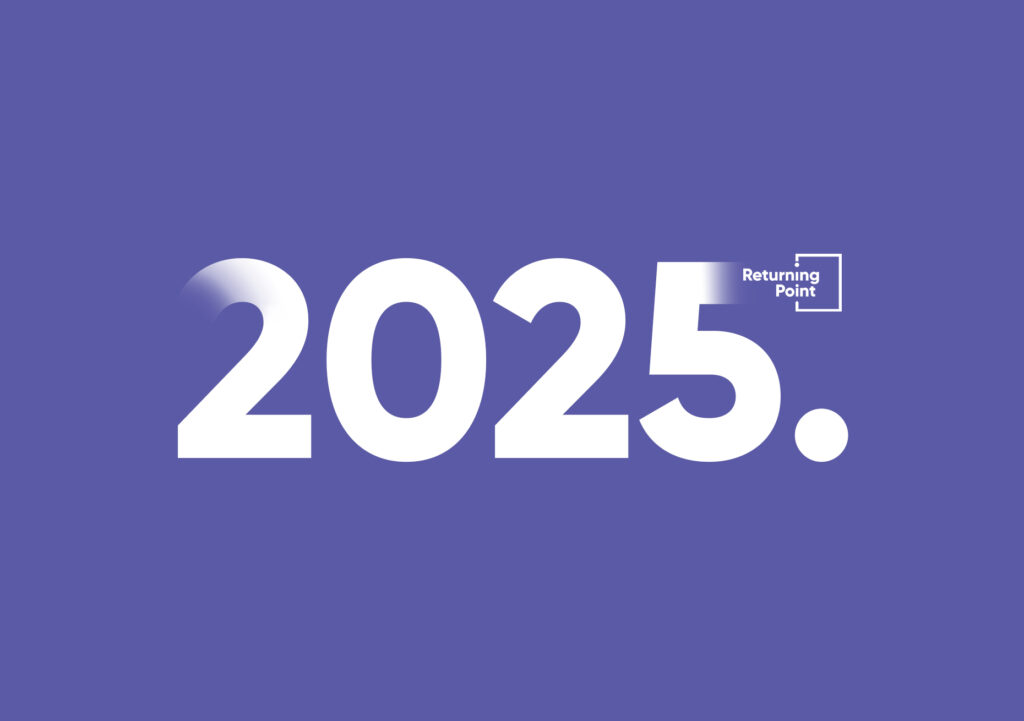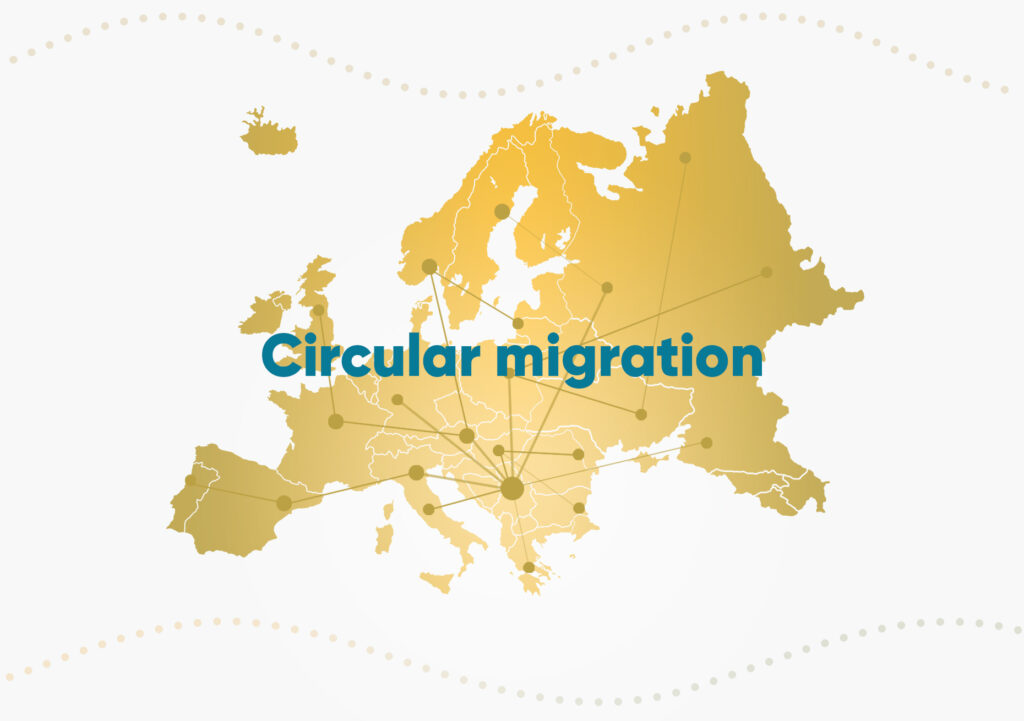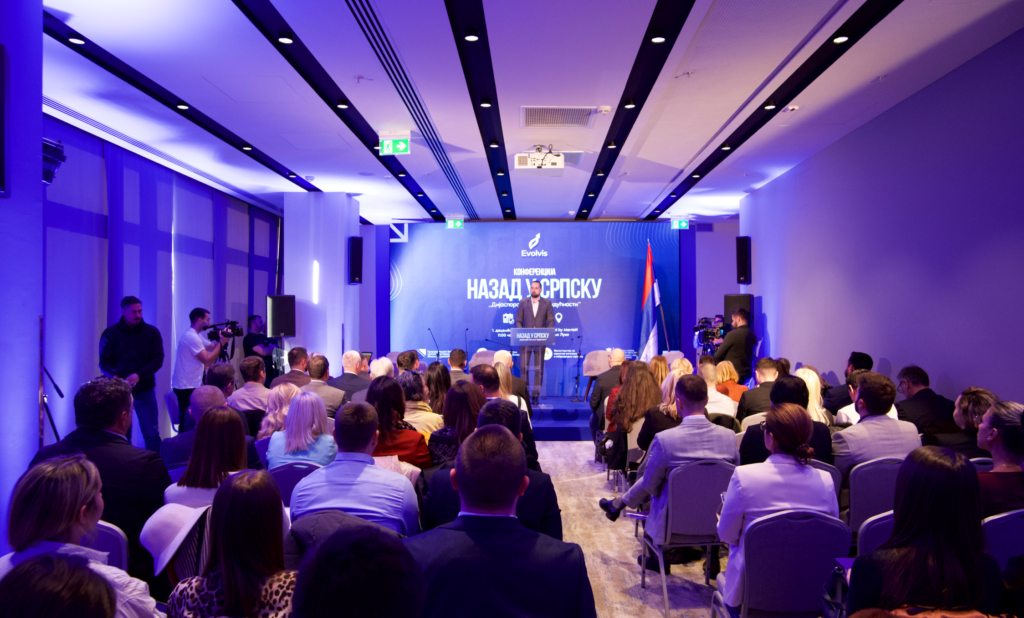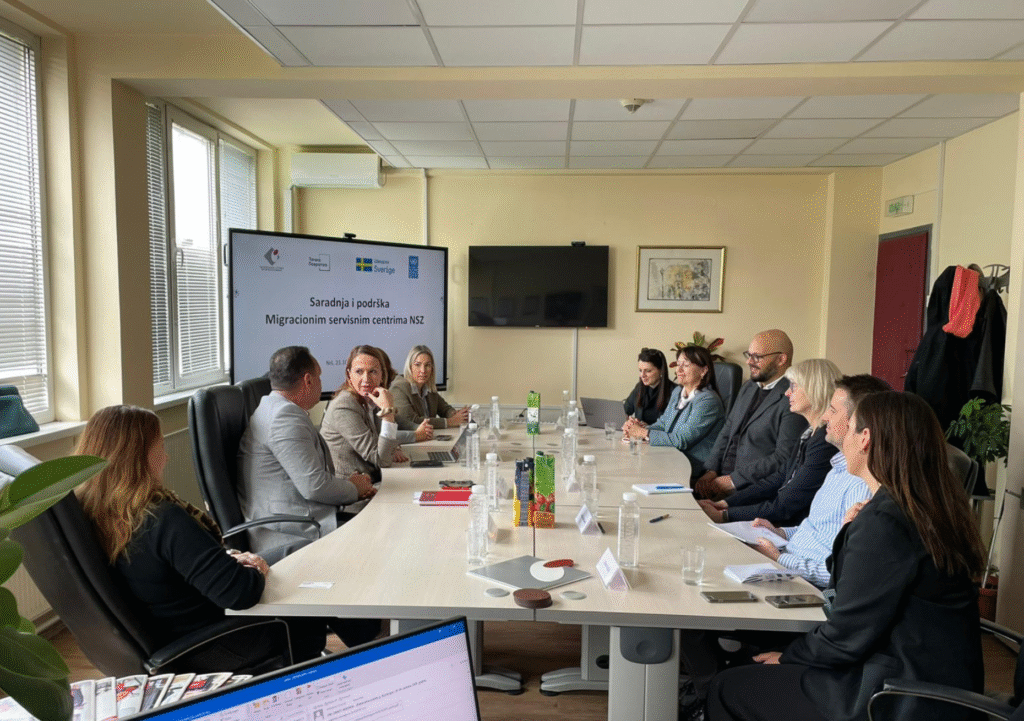Exactly five years ago, in the silence of a small room, under the dim light of an improvised studio, the microphone was turned on. There was no grand announcement or fanfare, but there was a quiet and persistent desire to tell stories that, until then, had rarely found their place: about returning and leaving, about belonging, and about paths that are often neither simple nor one-way.
This is how the “Returning Point” podcast came to be – not with the ambition to offer answers, but to create a space for asking personal questions about migration. Through 99 episodes, over 5,000 minutes of conversation, and 106 different voices, it became much more than a series about migration; it became a community, a place of recognition, and quiet support for all those who have left, returned, or are still somewhere in between.
But while the voices of guests were reaching listeners around the world, someone was always on the other side of the microphone – listening, recording, asking questions, changing formats, learning on the go, having doubts, but never giving up.
That is why, on the fifth anniversary of the podcast, we decided to turn the microphone in the opposite direction – towards those who create this podcast and know this story better than anyone else:
- The videographer who has heard every story and was present in the background of every conversation,
- The first host and former Returning Point director, who has shaped the tone and rhythm of the podcast since the very first episode,
- And the current host and Returning Point director, who has been an integral part of these stories from the very beginning and today is both its voice and face.
We asked them how it all began, what they have learned through these stories, which moments have stayed with them forever, and what the audience doesn’t see but should know.
This is their version of the story of “Returning Point”.
Three perspectives. One story.
Miloš Damnjanović, the videographer who heard every word
- Do you remember what recording the first episode was like?
I remember the moment when my colleague Ivan told me we would start working on a new podcast. At that time, I was already following Ivan’s work through the Sofra Sredom podcast, and I must admit I was a little nervous because he was already an experienced host. But when Ivan and Uroš came to discuss the technical details, everything just clicked – they were relaxed, specific, and knew exactly what they wanted. The first two episodes were online, but from the third episode, we started recording in our studio. And everything felt natural from the start, as if we had already recorded ten episodes. No one was nervous, the atmosphere was relaxed and pleasant. Since then, we’ve been recording and still enjoying it. - How did you see returning home back then, and how do you see it now – after 99 episodes?
Honestly, at first, like most people, I had the classic question: “Why would someone come back here?” But over time, by listening to all those stories, I realized that every decision to return is deeply personal and complex. There are many reasons, different paths, and nuances I didn’t even know existed. Today, I have a completely different view of return – I understand that it’s not just a physical change of place, but an emotional process, often long and nonlinear. - Is there an episode that particularly stuck with you?
The episode with Jason McCarty. A young Irishman who lived in Russia, France, England… but in the end, chose Serbia. He learned Serbian perfectly, even though he had no previous connections to this region. Stories like that show how deep the connection with a country can be – and how it has nothing to do with geography. - Your favorite behind-the-scenes anecdote?
I recorded an episode with Anders Simović, who, as a child, moved to Chile but would visit his grandparents in New Belgrade during the summer. During the recording, he mentioned the block where I lived, and it turned out that we actually lived in the same building, in the same entrance! I even used to hang out with his sister when we were kids. For years I didn’t know where they had disappeared – and here we were, meeting in the studio again. - What might the audience not know about each episode, but it would be good for them to know?
Maybe that everything is recorded in a completely relaxed, homey atmosphere. Both Ivan before and Uroš now come exceptionally well-prepared, but they never force the conversation – guests forget that they are in front of the camera. We record most episodes in one take, in a single breath. In fact, in 100 episodes, we only had to stop recording twice – both times because of me.
Ivan Brkljač, First Host and Former Returning Point Director
- How did the idea to start this podcast come about?
The idea came from a specific need – but also from a sense of responsibility to ensure that the stories of returnees are not left unheard. In the conversations we had with returnees – friends, colleagues, acquaintances – we realized that there was a huge gap in understanding what departure and return truly mean. We wanted those stories to leave the four walls and reach a wider audience. Returning Point became that platform. - How has the podcast changed over the years?
At the beginning, everything was very simple – modest equipment, familiar guests, intuitive hosting. Over time, we grew both professionally and thematically. We opened up to more diverse stories, listened to the audience, and learned from each episode. Today, there is a greater sense of responsibility – but also a clear realization that the podcast should remain honest and authentic. - Is there an episode that showed you that “all of this makes sense”?
There were several, but I definitely remember the conversation with Miroslav Kočić – his story shows how challenging, yet deeply transformative, returning can be. Also, the episode with Prince Philip and Princess Danica Karađorđević demonstrated that even the royal family is not immune to the challenges of migration and return. Every episode has something special – and I believe that each member of the team would highlight a different one. - What have you learned about the return through these conversations that you didn’t know before?
That return is not linear. It is not final. That it is not just a physical return, but a process that lasts and often takes place within us. Some people return multiple times, while others never truly come back. And that’s okay. Returning is a personal journey, not a destination. - What should the audience understand from each episode?
That return is neither a defeat nor a victory. That circular migration is the reality of our time, and it is completely legitimate to search for yourself – here and there. If even one episode changes someone’s perspective or sparks hope – we’ve done something important.
Uroš Živković, Current Host and Returning Point Director
- What was the key turning point in the development of the podcast over the past five years?
When we started, the podcast was conceived as a digital narrative meant to change the way we think and talk about circulation. The key turning point for me was when we began receiving inquiries from people following the podcast, asking for help with planning their return – because they were further motivated and inspired by the returnee stories we shared through our channels – for me, that was a “full circle” moment, and a clear sign that we were doing the right thing. - Do you notice a difference in the way people talk about return now compared to five years ago?
I’d say the difference is noticeable – although it may just be within our bubble – but I think the number of strange looks and questions like “Why did you come back?” is decreasing, and the circle of successful returnees who are building new stories here, in a slightly different way, is expanding, with people who have also returned from different parts of the world. - How does the process of choosing guests work – and how does it differ now compared to the earlier years?
At the beginning, we relied on our own contacts and people we knew personally – and as the community grew organically, our circle of people who circulate, have fantastic life stories, and are ready to share them in podcast format expanded. The selection of guests usually starts with an informal coffee or online meeting that transforms into a travel story, and then planning a recording date follows. The rest of the magic happens in front of and behind the cameras. 🙂 - What role does Returning Point and its podcast play in the community today?
I want to believe that we are still an inspiration for those considering return or circulation, to do it in the most meaningful way, with support and understanding, knowing that there is always a dedicated team of people here who will be available to them, ready to share the right information, tell incredible life stories, and open the community to new members. When you realize that we’ve had guests who have traveled from Antarctica, across the Himalayas, India, Asia, South and North America, lived in the world’s largest metropolises, and still managed to preserve their identity and connection to Serbia – I’d say that our source of inspirational human stories is inexhaustible. - What do you want people to understand about return when they listen to at least one episode?
Every biography of our guests that we share is very personal, layered, and rich in experiences that fundamentally change the personality’s makeup. I would like the listener to understand the transformative power of departure and return, the importance of preserving language and identity, but also that the grass is not always greener somewhere else, and that we can change many things if we nurture and water our own garden regularly.
Looking Back with Miloš, Ivan, and Uroš:
Through conversations with Miloš, Ivan, and Uroš, we reflected on the story that quietly unfolds behind the microphone. Each of them carries a part of that story, each from their own perspective, but with the same belief that conversations have the power to change perspectives.
The podcast is a living story – about the people who create it, the community that follows it, and about you, the listeners, who share it and give meaning to each episode.






